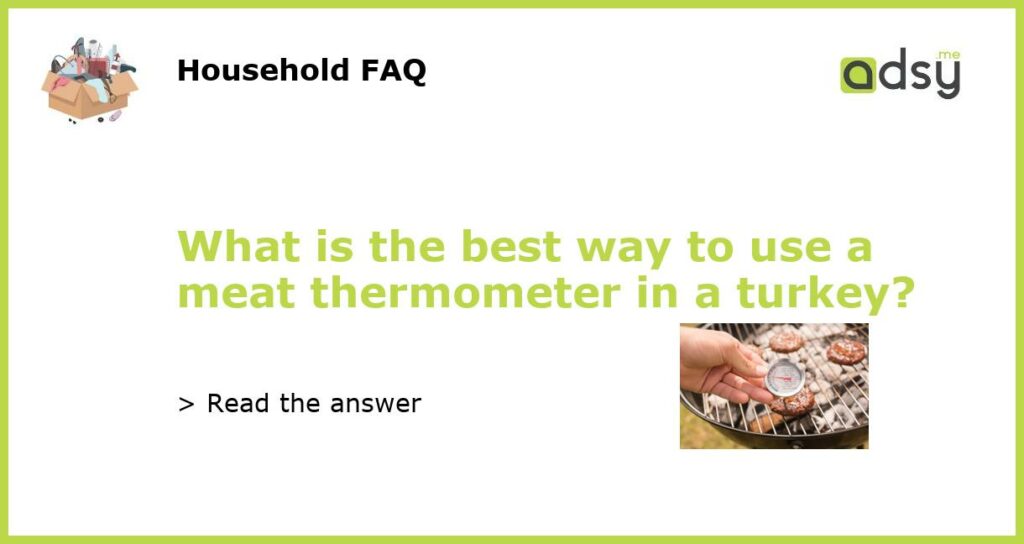Why using a meat thermometer is essential when cooking turkey
When it comes to cooking turkey, there are a lot of factors to consider to ensure a safe and delicious meal. One of the most important steps is using a meat thermometer to check the internal temperature of the bird. This is essential because undercooked turkey can lead to foodborne illnesses, while overcooked turkey results in a dry and unappetizing meal.
Step-by-step guide on how to use a meat thermometer in a turkey
Using a meat thermometer may sound intimidating, but it’s actually a straightforward process. Here’s how to do it:
- Insert the thermometer probe into the thickest part of the turkey’s thigh, avoiding the bone.
- Make sure the thermometer is securely in place, but not touching the pan or any bones, as this could give an inaccurate reading.
- Check the temperature regularly, usually every 15-30 minutes, until it reads 165°F (74°C).
- Once the target temperature is reached, remove the turkey from the oven and let it rest for at least 15 minutes before carving.
- Check the internal temperature of the stuffing as well, making sure it reaches at least 165°F (74°C) before serving.
Tips for using a meat thermometer in a turkey
Aside from following the above steps, there are a few tips that can help you use a meat thermometer effectively:
- If the thermometer is digital, it should give you a reading within a few seconds. If it’s analog, wait a minute or two to get an accurate reading.
- During cooking, avoid opening the oven door frequently, as this can affect the temperature and cooking time of the turkey.
- If you’re cooking a stuffed turkey, make sure to check the internal temperature of both the bird and the stuffing.
- Always wash the thermometer probe thoroughly before and after use to prevent cross-contamination.
- Investing in a high-quality digital meat thermometer with a long probe can make checking the temperature easier and more accurate.
The benefits of using a meat thermometer in a turkey
Using a meat thermometer in a turkey has several benefits:
- Makes sure the turkey is cooked thoroughly and safely, reducing the risk of foodborne illnesses.
- Helps prevent overcooking, leaving you with juicy, flavorful meat.
- Eliminates guesswork, ensuring consistent cooking results every time.
- Saves time and effort by giving you an accurate reading of when the turkey is done, rather than relying on visual cues.
Using a meat thermometer is a crucial step in cooking turkey safely and deliciously. By following these tips and guidelines, you can make sure your turkey is cooked to perfection every time, leaving your guests impressed and satisfied.






